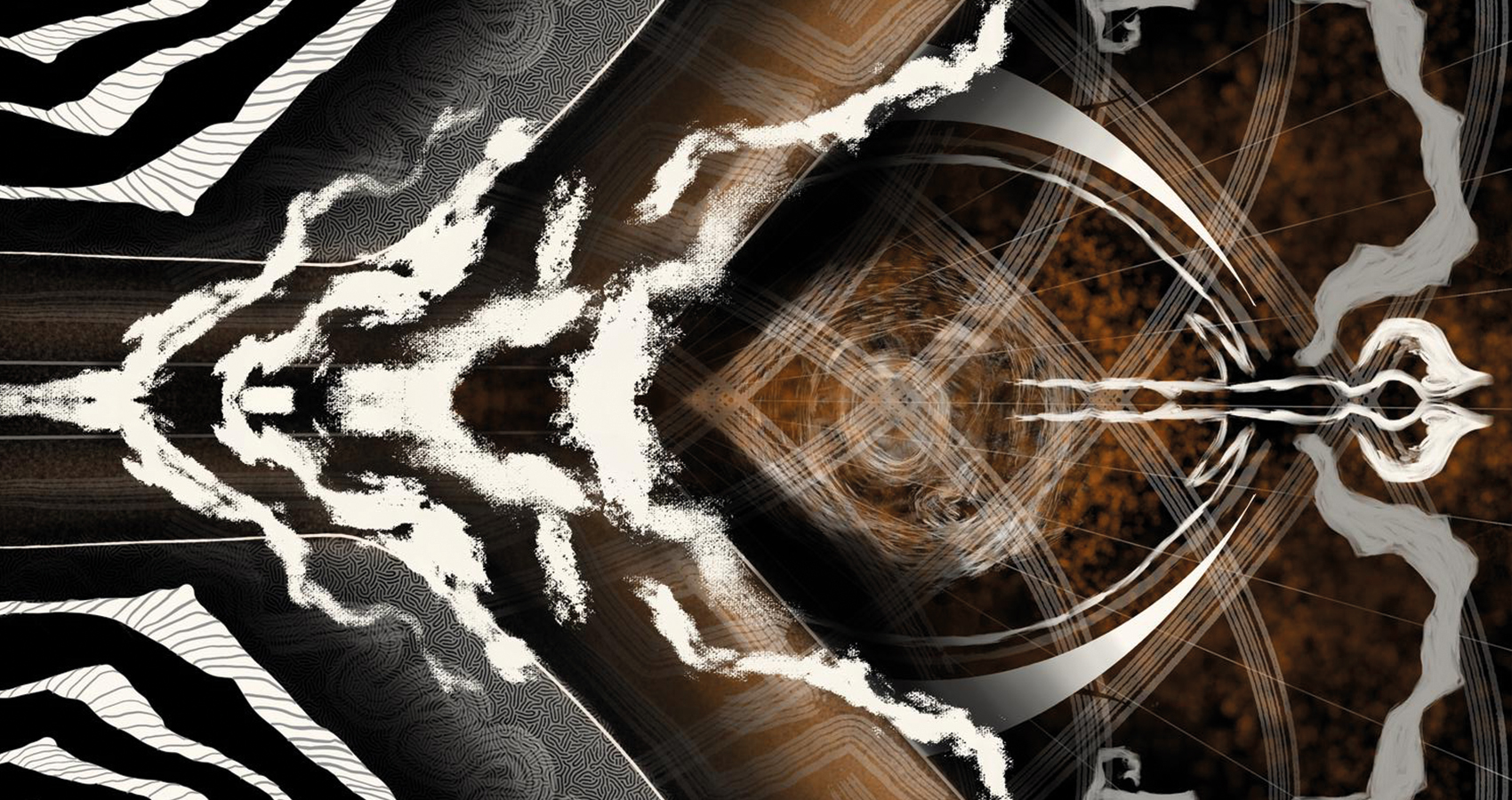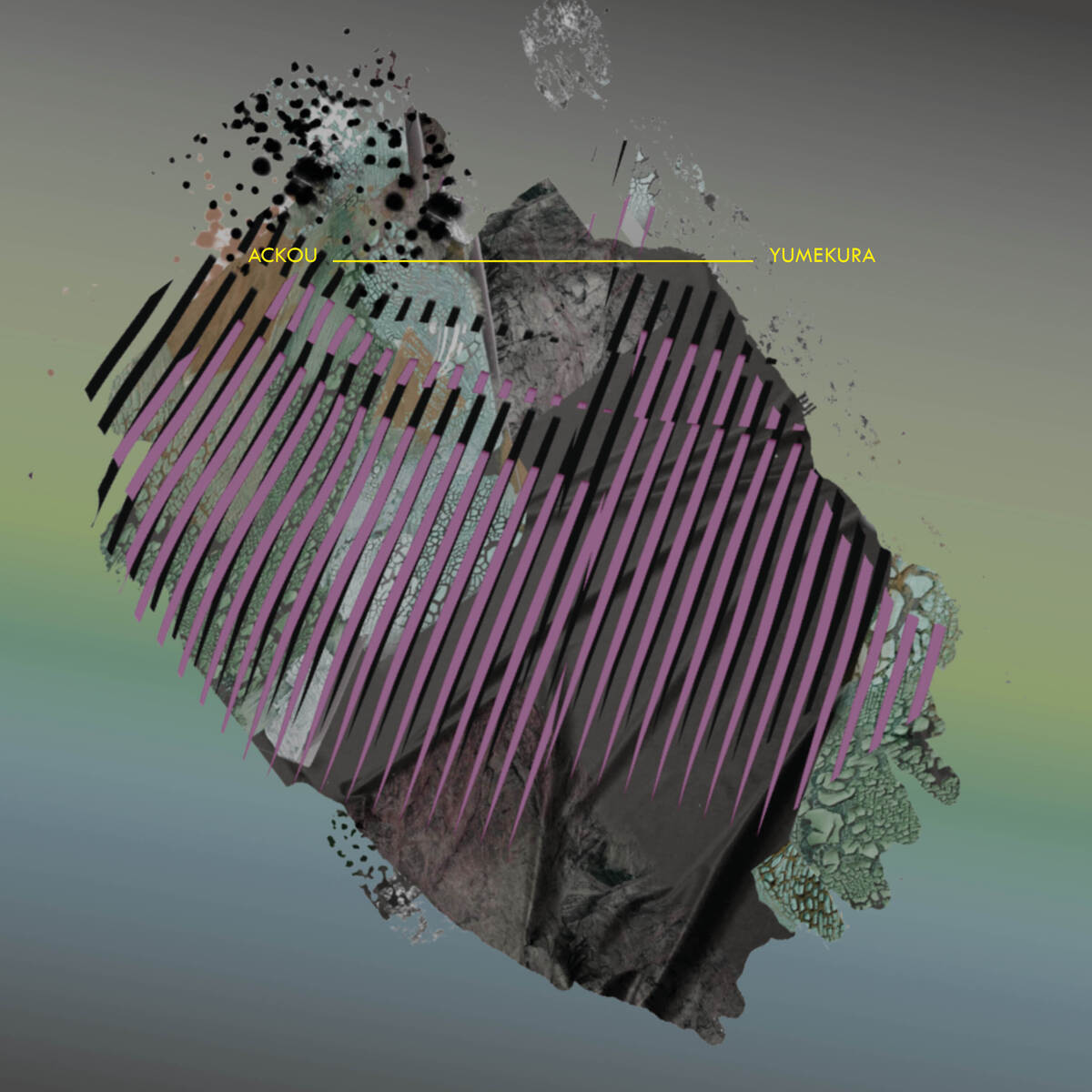
YUMEKURA: Standing with You at the Edge of Meaning
Ackou’s upcoming release guides listeners through alienation, beauty, and sonic chaos.
Let me introduce you to YUMEKURA — a bizarre demon created by Ackou, known for feeding on your darkest dreams and fantasies. Blending post-punk, Japanese pop, noise, and experimental orchestral music, it takes your hand and pulls you into a mad dance across the concrete rooftops of Berlin. Will you hold your ground at the edge where it leads you — or fall down right into your deepest shadows? YUMEKURA doesn’t ask. Either way, it doesn’t plan to apologize for its dark nature.
Too Experimental to Fit In

Ackou may sound like a new project to listeners, but in reality, it has a long history. Almost twenty years ago, three music artists — each working in different styles but admiring each other’s work — came together in Berlin: Japanese pop singer-songwriter Ayu Okakita, British orchestral composer and lyricist Marc Teitler, and German noise artist Bernd Wuertz. There, they created a surreal album with a boundary-blurring sonic landscape, blending their musical styles and cultures. “At the time I decided to collaborate on the album, I was miles away from anything related to pop music,” says Bernd Wuertz, capturing the exploratory tone that shaped YUMEKURA. “I was mostly immersed in abstract, atonal sounds — noise, musique concrète — that’s where my focus was back then, and it naturally seeped into our production.”
And yet, despite its raw and unconventional spirit, the record remained unheard at the time. “It isn’t an easy album to categorize,” explains Marc Teitler. “It isn’t strictly experimental electronic as it has an extensive range of different influences. That put the album in a tricky position for labels — and in those days, there was no real way around them.”
As the music industry evolved, Ackou finally had the chance to release their work in 2025. Interestingly, thanks to its outlandish sound, the album not only retained its potential audience — it may have even found more fertile ground than ever before. After all, individualism and experimentation in music have never been more highly valued than they are today.
Whispers at the Edge

Titled YUMEKURA — a Japanese word meaning “the one who devours dreams” — the album bears strong Japanese influences. This is largely thanks to vocalist Ayu Okakita, who also wrote half of the tracks in her native language.
At the same time, the lyrical protagonist’s main journey unfolds through the English-language songs. They guide the listener through emotional states that are often left unspoken — suspended in the fragile space between life and death. These tracks trace the threshold where loneliness bleeds into alienation, and anger transforms into all-consuming hatred. This is especially vivid in the eerily playful track Private Waltz, which reflects a hatred toward a once deeply loved person so intense that it slips into fantasies of murder.
Other English tracks of the album embody feelings of loneliness, meaninglessness, and suicidal ideation. A particularly striking example is Suicide Note, and its placement within YUMEKURA. Though it sounds like a farewell letter, its placement near the start of the album suggests that suicidal thoughts are not treated as an endpoint — but as a natural part of extreme despair, something to be acknowledged rather than acted upon. In this way, the album doesn’t shy away from heavy emotions — instead, it dives into them as deeply as possible.
The Shape of Emptiness

As for the Japanese-language tracks, they carry a somewhat more cheerful tone. Their lyrics were written in the format of flash poetry, with words used more for their sound than their meaning, though also with the aim of evoking a particular emotion. “I was having lots of fun with these lyrics,” says Ayu Okakita. “For Born Amongst Mirrors, when I sing chorus, I tried to sound as sweet as I could, and in verse, very selfish, childlike. It’s tsundere — sweet-n-sour. I was having fun like that.”
On one hand, this sonically driven use of language further highlights the album’s surrealist nature. On the other, it deepens the sense of emptiness — a replacement of meaning with form in everything except despair. In this light, the title of the album’s opening track, Ikigai, seems far from accidental. It refers to the Japanese concept of one’s sense of purpose in life — and it is precisely the loss of meaning in that purpose that marks the beginning of the lyric protagonist’s journey along the edge.
Without a doubt, for some listeners, such content may feel emotionally overwhelming. Those in vulnerable states should be especially gentle with themselves while listening to YUMEKURA. But it’s also important to note: this album does not invite you to jump down. In fact, it doesn’t jump either. Instead, it stands at the edge with you, showing that you are not alone in your alienation. And where two alienations meet, intimacy is born — and life, slowly, begins to regain its meaning.
Claw Marks in Concrete

Of course, the emotional and conceptual intensity of YUMEKURA didn’t emerge in a vacuum. While it carries echoes of Aphex Twin, Björk, and Can, some of its influences can be traced to the place where the album was made — Berlin.
“Living there without a label gave us the possibility to draw from a slightly more chaotic and broad sound palette,” says Marc Teitler. “Also, some of the stylistic elements are slightly industrial, which I think comes from living in Berlin.”
We can also see this industrialism reflected in the album cover. It depicts a figure resembling a block of concrete, intersected by sharp lines. These could be read as a soundwave — or as claw marks left by some bizarre beast in the city’s walls. That, in itself, says a lot about YUMEKURA: it leaves a mark.

At the same time, this is definitely not an album for a mass audience. Many will find it too depressing. Many — too abstract. Many will see it as too complex or too experimental. And yet, there will also be many who love it exactly for all of that.
All tracks from YUMEKURA will be available on May 23. In the meantime, you can pre-save the album and listen to the already released singles Private Waltz, Suicide Note, and Stranger in Paradise.











